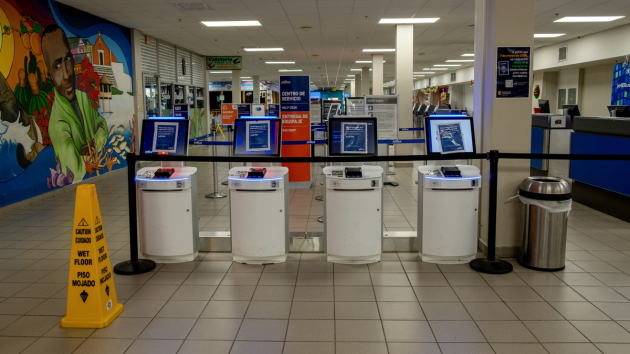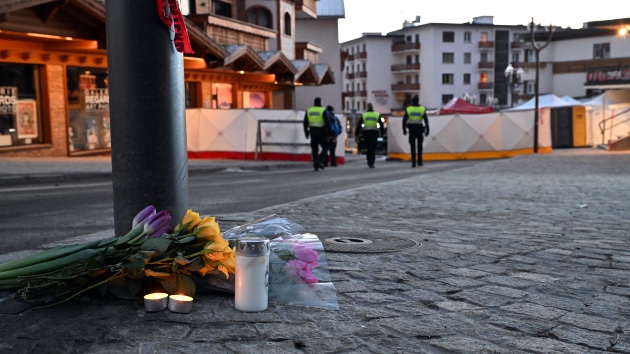Many Palestinian doctors are either dead, jailed or displaced, US doctors tell UN
Written by ABC Audio ALL RIGHTS RESERVED on February 12, 2025

(LONDON and NEW YORK) — Many Palestinian doctors who worked in the Gaza Strip are either dead, have fled the territory or are in prison, U.S. doctors told the United Nations.
Four U.S. medical doctors who have worked in the Gaza Strip for periods throughout the past 15 months spoke about their concerns and the priorities for bringing critical care needed in Gaza during a press conference at the U.N. in New York last week.
Drs. Thaer Ahmad, Ayesha Khan, Feroze Sidhwa and Mahmooda Syed met with the U.N. secretary-general and spoke last week with the press about the future of Gaza.
All four said they agreed they had never seen anything like what they saw during their time working in Gaza.
U.N. officials and nongovernmental organizations have repeatedly warned that the health care system in Gaza has collapsed and is lacking the critical resources needed to meet an overwhelming demand of injured and sick Palestinians.
With the fragile ceasefire in place between Israel and Hamas that is allowing aid to flow at much higher levels than it has in the past few months, and medical evacuations set to increase, the doctors said there needs to be a plan for the immediate needs of Palestinians.
Sidhwa said rebuilding hospitals is a priority.
Only 16 of 36 hospitals in Gaza remain partially functional, the U.N. said in January, before the latest ceasefire agreement to pause fighting was reached. Most of the functioning hospitals aren’t able to treat complex injuries or chronic diseases, the U.N. said.
Israel targeted and raided multiple health facilities in Gaza, most recently the Kamal Adwan Hospital in the north, in what the Israeli military said were anti-terrorism operations aimed at Hamas.
As a result, much of the infrastructure has been damaged, as shown in an ABC News visual analysis of the state of several hospitals after a year of war.
But it is not just the infrastructure that needs to be replaced, Sidhwa said, but all the machines and equipment, too. “There is extreme need with minimal capacity,” he said.
While this process takes place, the immediate priority should be evacuations, the doctors said. But even those come with many complications, especially for children, who, in the words of spokesperson Tess Ingram of UNICEF, are “disproportionately wearing the scars of the war.”
Many families are worried, for example, that they will not be allowed back inside Gaza, Ahmad said, urging for the evacuated children to be relocated to the West Bank or Jerusalem instead of Egypt or the U.S.
Syed said Israel only allows one adult to accompany each child evacuated from Gaza, while many parents have more children who require their presence.
These bureaucratic hurdles slow down what the doctors say is an urgent race against time.
Khan held up a photograph of a little girl’s foot, which was badly burned. When the patient came in, the doctor said he thought the wounds were fresh, but it turned out they were months old, and she might need an amputation.
Like that girl, many children and adults in Gaza sustained wounds months ago, increasing the chances of infections and long-term disabilities, the doctors said.
A senior U.N. official told the Security Council in October 2024 that Gaza has the largest number of amputee children in modern history.
The doctors also spoke about their personal challenges and the indescribable struggles of their colleagues in Gaza.
The four doctors said they faced many obstacles and now fear retaliation for sharing the details of what they say are violations of international humanitarian law, which Israel denies.
“The white coat does not protect you,” said Ahmad, conveying what he says is a shared belief among many Palestinian doctors.
Ahmad worked at Kamal Adwan Hospital, where the director, Dr. Hussam Abu Safiya, was detained in December by Israel. He has not been heard from since, but Israeli forces have confirmed he is in their custody as a suspected Hamas operative.
Safiya is one of more than 365 health care workers being held in Israeli prison, the head of information for the Hamas-led Gaza Health Ministry, Zaher Al Wahidi, told ABC News in January. ABC News has reached out to Israel for comment.
“This was the hospital that he built. Those were the departments that he helped develop. And he refused to leave,” Ahmad said of the Kamal Adwan director.
“Then he watched the military raid the hospital, destroy it, getting injured in the process,” he added. “Then he had to walk up to the tank, in his white coat, and shake the hand of the military that killed his son and injured him.”
As the U.N. panel concluded, Secretary-General António Guterres posted on X: “I was deeply moved by the testimonies and impressed by the dedication of 4 American doctors that have worked in Gaza. 2,500 children must be immediately evacuated with the guarantee that they will be able to return to their families and communities.”
Copyright © 2025, ABC Audio. All rights reserved.





